Uzbekistan is a social state. Based on this constitutional principle, the system of social support and assistance is becoming closer to the population. “Inson” centers have been opened in all regions, and 102 types of social services have been introduced in the mahallas. Social workers, going door-to-door, have provided assistance to 95,000 more people in need who had not previously been included in the register. 51 thousand people have been diagnosed with disabilities, 26 thousand have received prosthetics. 4 thousand lonely elderly people were identified and home care was organized for them. 5 thousand children with disabilities were placed in kindergartens and schools.
Such targeted work has reduced the number of appeals to people's reception centers and khokimiyats on social services and assistance by 35 percent.
Three months ago, 14 thousand leaders at the regional and district levels were assigned to 75 thousand low-income families for individual work. As a result, 17 thousand people from these families were employed in permanent jobs, income of 14 thousand people increased due to entrepreneurship and personal subsidiary farms. 30 thousand children are covered by kindergartens, clubs and vocational training, 45 thousand needy people are provided with medical assistance.
However, in some places the work is not organized efficiently enough. For example, 184 managers have never visited the homes of low-income families assigned to them. The employment rate of people with disabilities has reached 20 percent on average, but in Jalakuduk, Chimbay, Pastdargom, Chartak and Denau districts this figure is much lower. Out of 598 social facilities included in the investment program for the next year, not a single one has been adapted for people with disabilities.
The meeting reviewed the shortcomings and discussed further measures. The President presented new initiatives to strengthen the social protection system.
It was emphasized that in order to lift 1.2 million people out of poverty next year, the issues of education, vocational training, medicine and improvement of living conditions must be addressed.
There are successful examples. For example, early development centers have been opened in Taylak and Kasansay districts, where 4.2 thousand children from low-income families and children with disabilities received preschool education. The regional khokims have been instructed to study this experience and implement it in each district.
In addition, next year, family kindergartens will start operating in a thousand high-poverty mahallas. From the new year, 15 percent of places in such kindergartens will be provided to children from low-income families, and part of the fee will be subsidized by the state.
Additional educational opportunities will be created for children from low-income families. 118 thousand young people will be trained in foreign languages, IT and professional skills. Up to 80 percent of parents' expenses for these clubs will be subsidized from the budget. In 2025, 3.5 thousand of these children will enter universities on a grant basis.
23 thousand people in low-income families who cannot move independently are cared for by parents, spouses or children. From January 2025, home care will be organized for 19 thousand of them, and day care for 4 thousand. This will allow 15 thousand people who were previously caregivers to engage in labor activities. The state will reimburse 80 percent of the costs to the private sector providing care. This initiative will first be implemented in Tashkent and by the end of the year in all regions.
460 thousand people from low-income families need medical assistance, 6 thousand families need improvement of housing conditions. Next year, an additional 185 billion soums will be allocated to the health insurance fund to pay for surgical operations for those in need. Funds from “social notebooks” will be used exclusively to improve housing conditions of low-income families and increase their incomes.
Currently, citizens have to submit more than 10 different documents to receive social services and assistance. Now all of them will be replaced by a single social card. With the help of the card it will be possible to use public transportation free of charge, receive compensation for electricity, gas and tuition. Allowances and social assistance will also be received on this card. The system will be tested in Tashkent and Yangiyul district by July 1 and then introduced nationwide.
Support for people with disabilities was also discussed at the meeting. The level of rehabilitation in 33 districts was extremely low. It was instructed to organize rehabilitation services in every regional and district hospital. Financing of ergotherapy, physiotherapy and therapeutic gymnastics services in 12 rehabilitation centers will be increased 5 times. Chairs of rehabilitation will be opened in 7 medical universities, and teachers will be retrained on the basis of Korean experience.
Some disabilities can be treated with exercises performed at home. An exercise program and healthy eating menus will be developed for such patients. The effectiveness of rehabilitation will be assessed by changes in the mobility and communication of patients, and on this basis doctors will be paid salary increments.
Currently, the list of prosthetics and rehabilitation aids has been increased from 18 to 30 items, and their financing has increased 1.5 times. Next year it is planned to add 7 more types of means to the list, meeting the needs of 80 thousand people.
As a result of the created opportunities, this year entrepreneurs have employed 40 thousand people with disabilities. From January, the social tax rate for such enterprises will be 1 percent. The enterprises will also receive subsidies of up to 50 million soums for sign language interpreters, psychologists and attendants for visually impaired employees. Private employment agencies that train and employ people with disabilities will be able to receive grants of up to 500 million soums.
During the meeting other issues related to the implementation of the planned measures were discussed and proposals of social sphere specialists were heard.

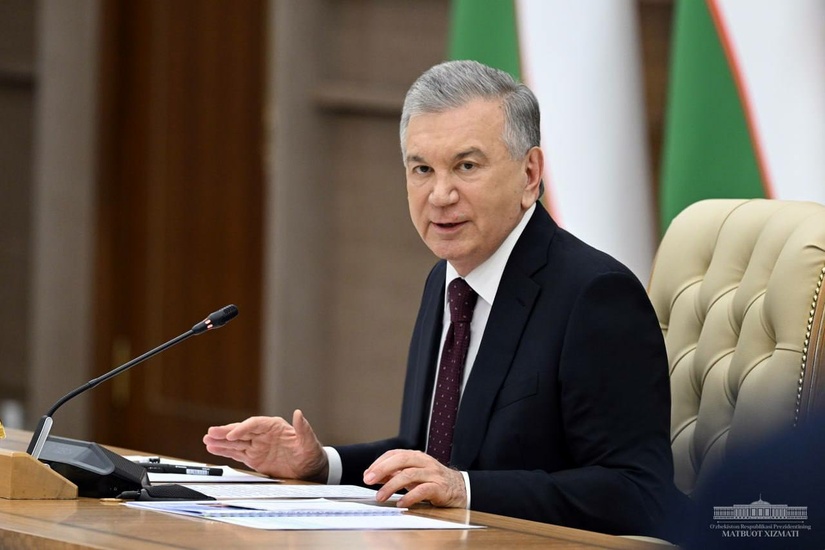
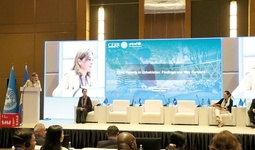
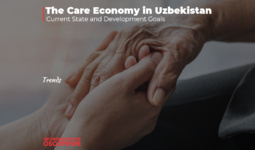
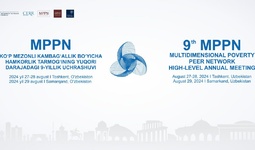
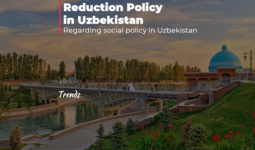
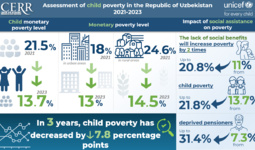
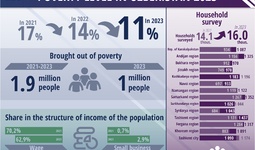



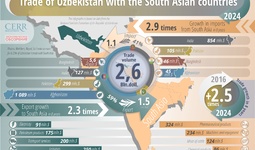

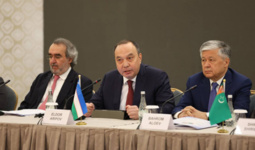



leave a comment